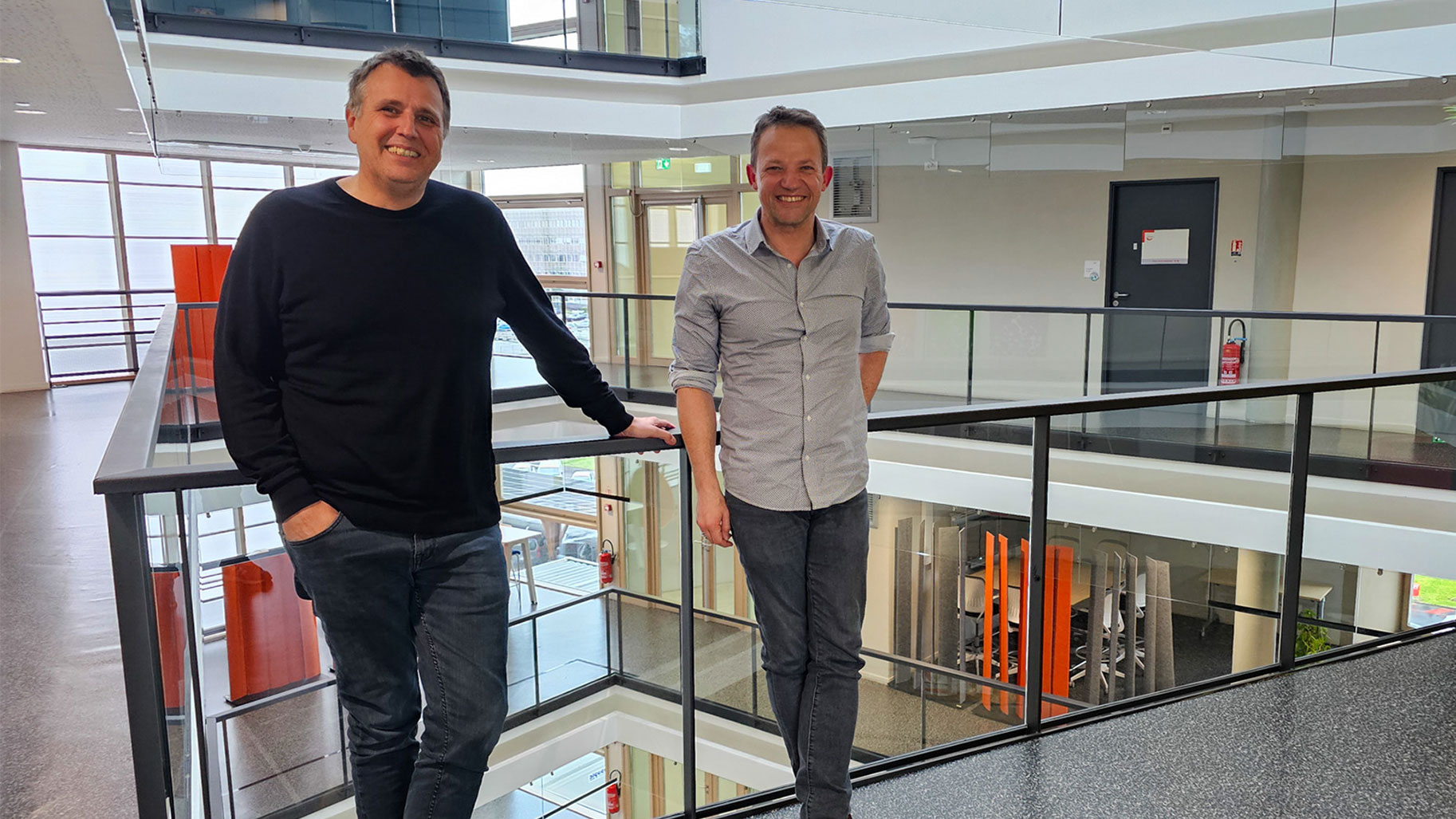How does mathematical culture contribute to research in the digital sciences today?
Date:
Changed on 14/08/2024

Vincent Koziarz, Director of the IMB: "I believe that mathematics is first and foremost a way of thinking, a discipline that teaches us the need to justify everything, to demonstrate rigorously. Secondly, it is necessary for all sciences, and has been since Ancient Greece and even before. In France, we have built up a strong tradition of high-quality mathematics, which we must perpetuate. Finally, mathematics can bring about real technological breakthroughs through fundamental research. Today, the IMB is one of France's largest mathematics centers, covering the entire spectrum of mathematics, from the most fundamental to the most applied."
Nicolas Roussel, Director of the Inria Center at Bordeaux University: "We can start by defining the word 'digital'. Digital is a combination of sciences and technologies, objects, services, uses, cultures, hopes and fantasies.
Digital science and technology were essentially built on our ability to describe phenomena in numbers and equations using mathematics, and on the possibility of automating these calculations using electronics, ultimately leading to the emergence of computer science. It's clear, then, that without mathematics there can be no digital technology, but that the latter also enables us to extend the fields of use of mathematics."
VK: "In our 7 joint project teams, several types of mathematics are developed, notably partial differential equations (PDEs) and statistics.
Our teams seek to solve these equations, which govern many physical and biological principles, numerically, as explicitly and robustly as possible, and as close to reality as possible. This is the case for Cardamom and Memphis, each with a different approach. In the medical field, the Carmen and Monc project-teams combine PDE and statistics, based on experimentation and data management. The Astral team models complex real-life systems using statistical and stochastic analyses.
The Edge project-team is also involved in operations research. More specifically, integer linear programming is essential to the development of decision-support tools based on discrete mathematics. Finally, the Canari team aims to implement fundamental mathematics to facilitate the use of complex theorems, notably in cryptography. Once again, this is the advantage of computer science, which enables us to perform quantities of calculations that would be impossible for human beings."
NR: "To continue with Canari, the application often highlighted when talking about this team is post-quantum cryptography, which aims to design encryption methods robust enough to withstand attacks that could be carried out in the future using quantum computers.
Astral explores a wide range of subjects. It is working with Naval Group on the optimization of trajectories for underwater detection, as well as with INRAE on the taste and nutritional qualities of beef.
Edge develops optimization methods that it applies to the transport of goods, people or energy, for example. Memphis has worked on modeling phenomena linked to wind turbines and marine wave converters for renewable energy production, and is working with ONERA on new modes of aerial propulsion. The team also contributed to the creation of Nurea, a start-up specializing in aneurysm diagnostics. Cardamom works on coastal risk modeling, as well as aircraft wing de-icing.
If these project teams have a wide range of applications, it's because the methods they develop can be used in so many different fields.
Some of our project teams choose to concentrate on a particular field. Carmen, for example, focuses on cardiac electrophysiology (in conjunction with IHU Liryc), while Monc concentrates on understanding and monitoring cancer progression.
It is important to note that most of this research is carried out in collaboration with public or private partners, often in strategic fields. Some of it is funded as part of priority research programs and equipment (PEPR). I'm thinking, for example, of the PEPRs for quantum technologies, cybersecurity, risk management and energy systems."
VK: "Yes, I think mathematics isn't everything. First of all, there may sometimes be arguments or formulas of authority that are used to cut short any discussion, but in reality, just because there's mathematics somewhere doesn't mean that contradiction isn't possible.
It then makes me think of certain mathematicians who have tried their hand at other disciplines, like biology for example, and it didn't work out for them. Each discipline has its own culture, so it's important that they co-exist and collaborate.
And finally, for me, there are certain fields that mathematics cannot completely master or formulate, such as human relationships. Some people try, but it seems complicated, if not impossible."
NR: "I've been lucky enough to work with people from a wide range of disciplines, some close to mathematics and computer science and others close to human disciplines such as psychology, sociology or design. Basically, what's essential is diversity, both in terms of disciplines and in a more global sense, including parity and social mix. In addition to computer scientists and mathematicians, digital technology needs the opinions of other experts: lawyers, philosophers, etc. We need to bring together different cultures and backgrounds. We need to mix cultures, knowledge and know-how to move forward. Saying this in no way diminishes the importance of mathematics. Everyone must be able to contribute in their own way."